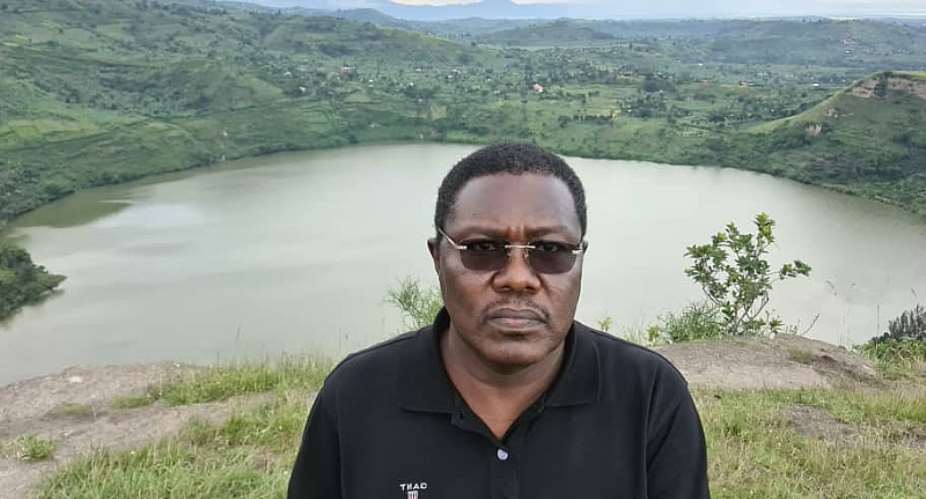Regional economic reports indicate that Rwanda earned slightly more than half a billion-dollars from gold receipts of FY 2020/21. With approximately $2bn in Uganda we earned four folds more. We both don’t possess fundamental deposits of gold but have lately identified the precious metal as a strategic item for international trade. In our situation, the foregoing period was also our best performance with the strategic cash crop—coffee. But forex from gold surpassed that from coffee by four times.
In positioning Uganda as a regional destination for gold trade, three state-of-the-art refineries have since been established—including African Gold Refinery at Entebbe, Bullion Refinery and Simba Gold Refinery in Kampala.
In Uganda, we are blessed with about eight million ounces of gold; big enough to spur our economy but not sufficient to sustainably feed the refineries. This partly explains why despite having the capacity, the Entebbe based refinery is yet to engage in jewelry manufacturing.
Across the border, our friends in Rwanda are already into jewelry making. Kigali was excited by the gold returns of $522m last fiscal year that registered a mammoth increment of over 200%. This notwithstanding, Rwanda feels the confidence to do better than that.
In the new measures, Kigali has disengaged from the partnership with a Dubai-based gold firm, Aldabra Ltd whose international experience had brought it thus far since 2019. It cites tax evasion issues although the duty to manage the Aldango gold refinery in Kigali was a 50-50 shared responsibility with Ngali Mining, a state-owned company.
Now, the frozen Aldabra Ltd had been responsible for the inflows of raw gold mainly from neighboring DRC and other African sources such as Central African Republic, Sudan and South Sudan. But the owner of Aldabra in UAE is the same majority stakeholder at African Gold Refinery in Entebbe, Uganda. He is called Alain Goetz, a Belgian national. The same Mr Goetz secured the refinery equipment for himself in Uganda with an operation capacity of 219 tons and earmarked for his partnership in Rwanda a refinery of 73-ton capacity; just a third of that in Uganda. This must have maddened Kigali.
To completely cut off Goetz’s supply lines for the Entebbe firm, last month on June 26 president Paul Kagame inked a gold-mining deal with president Félix Tshisekedi of DRC. In detail, the deal practically places the responsibility of providing security to DRC gold mines squarely on Rwanda’s shoulders. It is categorical on: (i) promotion and protection of investments, (ii) avoidance of double taxation and tax evasion and (iii) gold mining cooperation.
Rwanda will invest in DRC gold sites (most likely by upfront payment), deploy security (military by all means) to sentry the mines, physically engage in mining activity, transfer the metals to Kigali for refining, manufacture the ornaments thereof, promote and market them internationally and share the dividends with Kinshasa. Bad to anyone? Obviously.
Whereas Kigali’s main target is Alain Goetz; the major victim is us, Ugandans. It is an expanded attack on our regional economic interests. An extension of what started in 2019 by closure of the common border. The explanation then was to rehabilitate inland access roads within Rwanda which eventually evolved into an economic embargo to-date.
Today, the excuse for severing relations with Goetz’s Aldabra firm is tax evasion. But in a real sense the measure constitutes an economic war. If things are left as they are, we shall be short of what we earned from gold last FY. More Ugandan gold dealers risk death from inside the DRC than have been shot dead at the common border with Rwanda.
Apparently we are investing in DRC’s physical infrastructure for one major purpose—to maximize trade benefits. Hence Kampala must expeditiously review existing economic protocols with Kinshasa to guarantee unconstrained access to all resources in either country that are of mutual benefit to all.





 Former Kotoko Player George Asare elected SRC President at PUG Law Faculty
Former Kotoko Player George Asare elected SRC President at PUG Law Faculty
 2024 elections: Consider ‘dumsor’ when casting your votes; NPP deserves less — P...
2024 elections: Consider ‘dumsor’ when casting your votes; NPP deserves less — P...
 You have no grounds to call Mahama incompetent; you’ve failed — Prof. Marfo blas...
You have no grounds to call Mahama incompetent; you’ve failed — Prof. Marfo blas...
 2024 elections: NPP creates better policies for people like us; we’ll vote for B...
2024 elections: NPP creates better policies for people like us; we’ll vote for B...
 Don’t exchange your life for wealth; a sparkle of fire can be your end — Gender ...
Don’t exchange your life for wealth; a sparkle of fire can be your end — Gender ...
 Ghana’s newly installed Poland train reportedly involved in accident while on a ...
Ghana’s newly installed Poland train reportedly involved in accident while on a ...
 Chieftaincy disputes: Government imposes 4pm to 7am curfew on Sampa township
Chieftaincy disputes: Government imposes 4pm to 7am curfew on Sampa township
 Franklin Cudjoe fumes at unaccountable wasteful executive living large at the ex...
Franklin Cudjoe fumes at unaccountable wasteful executive living large at the ex...
 I'll 'stoop too low' for votes; I'm never moved by your propaganda — Oquaye Jnr ...
I'll 'stoop too low' for votes; I'm never moved by your propaganda — Oquaye Jnr ...
 Kumasi Thermal Plant commissioning: I pray God opens the eyes of leaders who don...
Kumasi Thermal Plant commissioning: I pray God opens the eyes of leaders who don...
